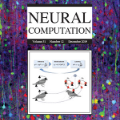Spiking Neural Networks (SNNs) seek to mimic the spiking behavior of biological neurons and are expected to play a key role in the advancement of neural computing and artificial intelligence. The conversion of Artificial Neural Networks (ANNs) to SNNs is the most widely used training method, which ensures that the resulting SNNs perform comparably to ANNs on large-scale datasets. The efficiency of these conversion-based SNNs is often determined by the neural coding schemes. Current schemes typically use spike count or timing for encoding, which is linearly related to ANN activations and increases the required number of time steps. To address this limitation, we propose a novel Canonic Signed Spike (CSS) coding scheme. This method incorporates non-linearity into the encoding process by weighting spikes at each step of neural computation, thereby increasing the information encoded in spikes. We identify the temporal coupling phenomenon arising from weighted spikes and introduce negative spikes along with a Ternary Self-Amplifying (TSA) neuron model to mitigate the issue. A one-step silent period is implemented during neural computation, achieving high accuracy with low latency. We apply the proposed methods to directly convert full-precision ANNs and evaluate performance on CIFAR-10 and ImageNet datasets. Our experimental results demonstrate that the CSS coding scheme effectively compresses time steps for coding and reduces inference latency with minimal conversion loss.
翻译:暂无翻译





